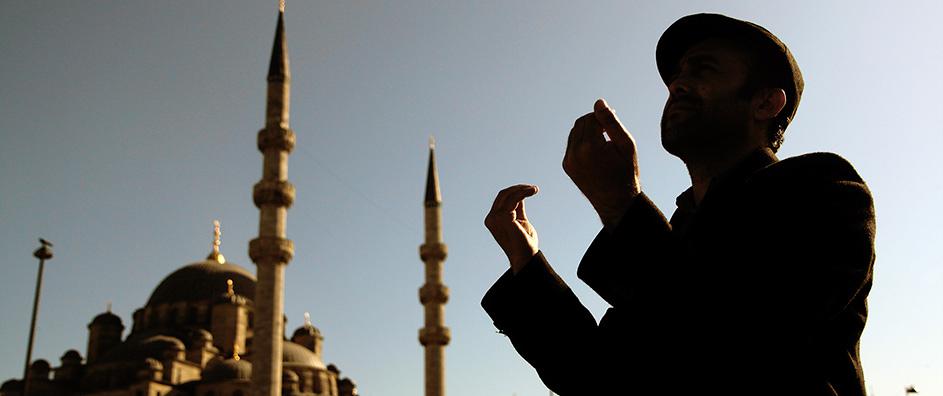The Bahá’í Faith, marked by its profound reverence for the divine revelations throughout history, particularly emphasizes the pivotal moment known as “The Hour of Muhammad.” This doctrine signifies a transformative encounter between humanity and the divine, elucidating the nature of God’s relationship with His Creation. In this reflection, we will explore various key aspects of this hour, delving into the underlying teachings that resonate within Bahá’í scripture.
At the heart of Bahá’í belief is the acknowledgment of progressive revelation—a concept that posits that God’s messages are delivered through a succession of prophets or “Manifestations” throughout time. Each Manifestation brings forth a new understanding that builds upon the previous one, culminating in the teachings of Muhammad, regarded as a significant Messenger within the Islamic tradition. His prophetic role embodies the divine qualities of mercy, justice, and guidance, which are essential for human development and spiritual evolution.
The term “Hour of Muhammad” invokes a sense of urgency and anticipation. It symbolizes not just a specific time in the past but reflects the ongoing cosmic moment in which individuals are continuously invited to engage with God. Each “hour” or moment represents an opportunity for spiritual awakening, urging adherents to reflect upon their relationship with the divine. This profound engagement enables believers to scrutinize their inner selves while aspiring towards moral rectitude.
Central to understanding this hour is the concept of “meeting with God.” In Bahá’í thought, this meeting transcends mere physical presence; it encompasses the spiritual connection that arises through sincere prayer, meditation, and the harmonious practice of one’s faith. The Bahá’í teachings advocate that through earnest supplication, individuals can cultivate an intimate relationship with the divine. This relationship is not static but rather dynamic, evolving as one engages deeper with the precepts of the Faith.
Bahá’u’lláh, the founder of the Bahá’í Faith, articulates that the ultimate aim of life is to know and love God. The hour signifies a moment of heightened consciousness and awareness. Within the teachings, believers are encouraged to seize this temporal opportunity to recognize the divine presence continuously. This philosophy nudges individuals to maintain a steadfast commitment to spiritual growth, as human souls are believed to be perpetually engaged in the process of inner transformation.
Additionally, the concept of “meeting with God” extends to the realm of service and advocacy. The Bahá’í teachings inspire individuals to express their faith through action by fostering unity, justice, and love within their communities. The connection to God is not limited to personal spirituality; rather, it flourishes in the collective endeavors aimed at the betterment of society. This guidance reinforces the belief in a holistic approach to spirituality, which nurtures both individual and communal dimensions.
Moreover, “The Hour of Muhammad” serves as a reminder of the temporal nature of existence. It compels adherents to recognize the fleeting nature of life and the significance of each moment. The Bahá’í writings urge followers to reflect on their impact, urging them to live purposefully, as each deed carries weight in the divine narrative. The awareness of time invites believers to prioritize their spiritual obligations, thus engendering a sense of urgency in their actions.
The portrayal of Muhammad in Bahá’í literature is multifaceted. He is presented not only as a Messenger of God but also as an exemplar of perfect human attributes. The teachings reflect the virtues of love, compassion, and equity that characterized his life. By embodying these ideals, followers are encouraged to emulate such qualities in their interactions with others, fostering a culture of respect and understanding amid diversity. This reflection highlights the importance of community-centered spirituality, fostering interconnectedness among individuals.
Furthermore, the Bahá’í perspective on the “Hour of Muhammad” prompts affiliate believers to engage in deep philosophical inquiry concerning the nature of God. Such explorations reveal the multiplicity of divine attributes, thereby enriching individual understanding and appreciation of the divine reality. The teachings implore believers to utilize their intellect, as inquiry is viewed as a sacred duty; it is through this understanding that one may identify their individual path toward divine union.
In exploring the implications of the “Hour of Muhammad,” it is also essential to consider its role in interfaith dialogue. The Bahá’í Faith advocates for the unity of all religions and underscores the shared truths that resonate across various spiritual traditions. The teachings provide a lens through which adherents can view religious differences not as barriers but as a rich tapestry of divine expression. This perspective enables constructive discussion, aiming to cultivate mutual respect and understanding among diverse faith communities.
In conclusion, “The Hour of Muhammad: A Bahá’í Reflection on Meeting with God” offers a compelling exploration of the interaction between the divine and humanity. It encompasses the essential teachings of progressive revelation, the importance of personal and community engagement with God, and the profound implications for moral and ethical living. The hour resonates with the call to spiritual awakening, self-exploration, and the pursuit of collective unity. Bahá’ís are invited to recognize each moment as a divine opportunity for connection—one that echoes the timeless call of God to humanity for service, love, and the recognition of shared humanity.
